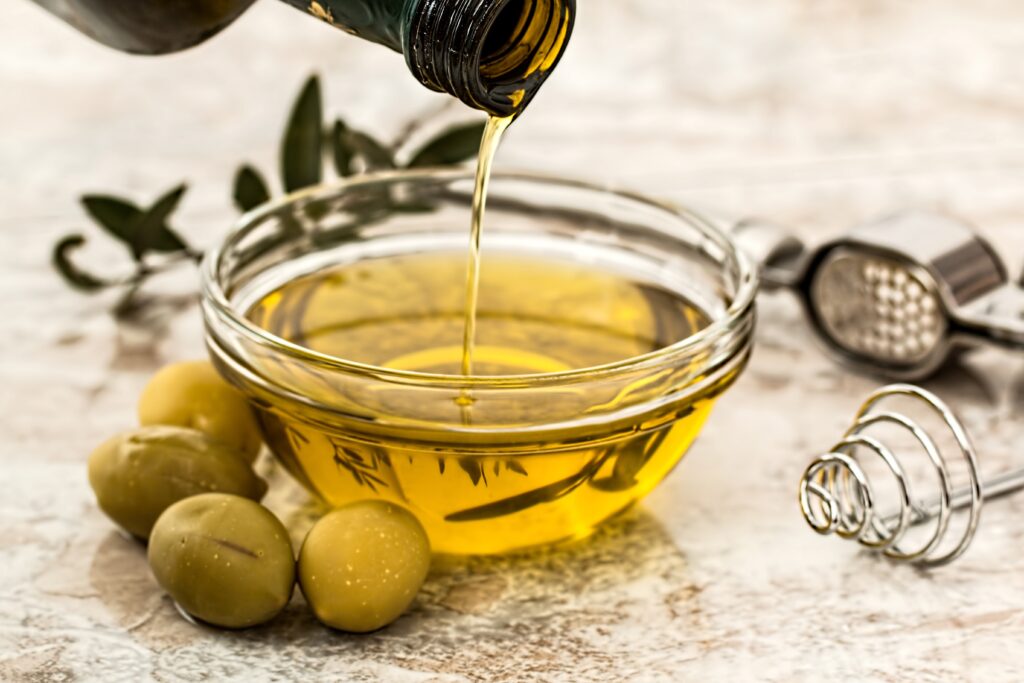Phobia of Fats
go.ncsu.edu/readext?781230
en Español / em Português
El inglés es el idioma de control de esta página. En la medida en que haya algún conflicto entre la traducción al inglés y la traducción, el inglés prevalece.
Al hacer clic en el enlace de traducción se activa un servicio de traducción gratuito para convertir la página al español. Al igual que con cualquier traducción por Internet, la conversión no es sensible al contexto y puede que no traduzca el texto en su significado original. NC State Extension no garantiza la exactitud del texto traducido. Por favor, tenga en cuenta que algunas aplicaciones y/o servicios pueden no funcionar como se espera cuando se traducen.
Português
Inglês é o idioma de controle desta página. Na medida que haja algum conflito entre o texto original em Inglês e a tradução, o Inglês prevalece.
Ao clicar no link de tradução, um serviço gratuito de tradução será ativado para converter a página para o Português. Como em qualquer tradução pela internet, a conversão não é sensivel ao contexto e pode não ocorrer a tradução para o significado orginal. O serviço de Extensão da Carolina do Norte (NC State Extension) não garante a exatidão do texto traduzido. Por favor, observe que algumas funções ou serviços podem não funcionar como esperado após a tradução.
English
English is the controlling language of this page. To the extent there is any conflict between the English text and the translation, English controls.
Clicking on the translation link activates a free translation service to convert the page to Spanish. As with any Internet translation, the conversion is not context-sensitive and may not translate the text to its original meaning. NC State Extension does not guarantee the accuracy of the translated text. Please note that some applications and/or services may not function as expected when translated.
Collapse ▲ Why are so many folks afraid of fats? Fats may seem like a scary word, but they are beneficial for our bodies as a Macronutrient. According to Harvard Health Publishing, fats provide energy for the body, help to absorb vitamins and minerals in the body, help with inflammation, and much more. When it comes to consumption of fat, it’s all about consuming in moderation and what types of fats to mainly use. Saturated fats are fats that are mainly sourced from animal products like butter or beef fat. These fats should be limited to a small amount. Overconsumption of saturated fats have been linked to heart disease. Polyunsaturated and Monounsaturated fats are better for consumption, but should still be consumed in moderate amounts. These fats are typically sourced from plants like nuts, seeds, and vegetables like olives and avocado. Last, we have trans fats. Trans fats are typically found in processed foods. The production helps to stop rancidity, however overconsumption is linked to heart disease, stroke, and diabetes. Consumptions of trans fats should be limited or restricted as much as possible. Fats are an important nutrient we need, and making smart choices about them will keep your body in good shape. Remember, don’t fear fat, befriend them!
Why are so many folks afraid of fats? Fats may seem like a scary word, but they are beneficial for our bodies as a Macronutrient. According to Harvard Health Publishing, fats provide energy for the body, help to absorb vitamins and minerals in the body, help with inflammation, and much more. When it comes to consumption of fat, it’s all about consuming in moderation and what types of fats to mainly use. Saturated fats are fats that are mainly sourced from animal products like butter or beef fat. These fats should be limited to a small amount. Overconsumption of saturated fats have been linked to heart disease. Polyunsaturated and Monounsaturated fats are better for consumption, but should still be consumed in moderate amounts. These fats are typically sourced from plants like nuts, seeds, and vegetables like olives and avocado. Last, we have trans fats. Trans fats are typically found in processed foods. The production helps to stop rancidity, however overconsumption is linked to heart disease, stroke, and diabetes. Consumptions of trans fats should be limited or restricted as much as possible. Fats are an important nutrient we need, and making smart choices about them will keep your body in good shape. Remember, don’t fear fat, befriend them!




